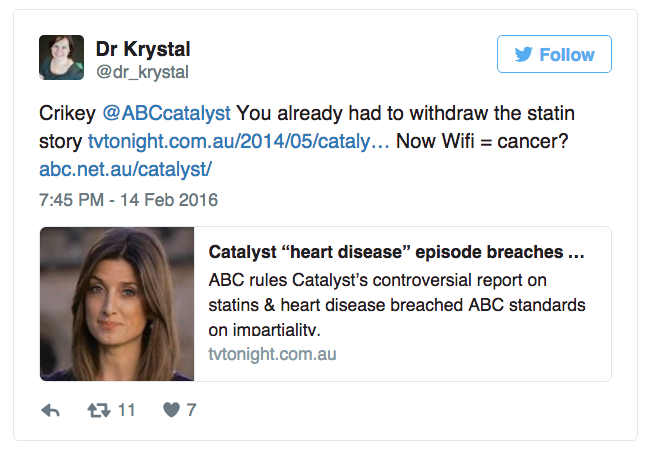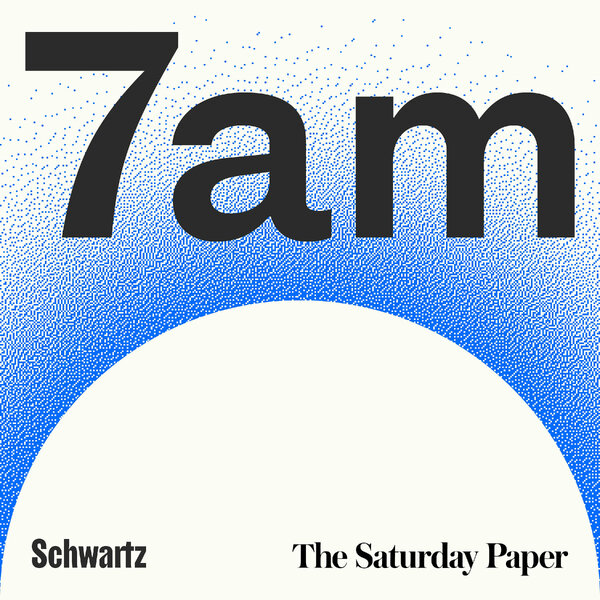A controversial report on the ABC’s Catalyst program that linked Wi-Fi and mobile phone use with cancer has been criticised for its lack of “scientific rigour”, with one expert calling parts of the story “complete rubbish”.
Professor Rodney Croft, a global expert on the effects of radiation from the University of Wollongong, said the report called Wi-Fried had given weight to “a fringe position that is not supported by science”.
“I was particularly disappointed to see Wi-Fried aired yesterday in the guise of science journalism,” Professor Croft told the Sydney Morning Herald.
“Given that radiofrequency emissions are one of the most heavily researched agents that science has ever assessed, and given that (contrary to Catalyst’s claims) no substantiated health effects have emerged, we can be very confident that the emissions are indeed safe,” he said.
The ABC report featured Devra Davis, a US cancer epidemiologist, who claims the lack of increase in brain cancer rates is due to cancer’s long latency.

Devra Davis
But emeritus professor of public health Simon Chapman labelled Ms Davis’ comments “complete rubbish – it is just crap”.
“We have had mobiles in Australia since 1988 – some 90 per cent of the population use them today and many of these have used them for a lot longer than 13 years, but we are seeing no rise in the incidence against the background rate,” Professor Chapman said.

The Wi-Fried story was reported by Dr Maryanne Demasi | Image | ABC
The Wi-Fried story was reported by Dr Maryanne Demasi, whose controversial 2013 investigation into the use of statins to lower cholesterol was later removed from ABC websites.
An internal ABC review found that report had breached standards of impartiality and was slammed by health experts for misrepresenting evidence.

Image | Twitter
Respected ABC health reporter Norman Swan said Wi-Fried had not shown enough scientific rigour.
“It’s a legitimate debate; however, there is no proven biological mechanism for electromagnetic waves to cause cancer,” said Dr Swan.
“The program did not take into account that young people are not holding their mobile phones to their heads – usually they are texting or Facebooking.
“And I’m not convinced by the argument that there is a 40-year lag in the development of cancer – we often see signs after much less time that that,” he said.
SEE ALSO: KEN HINKLEY HITS BACK AT “OFFENSIVE” REPORTS
SEE ALSO: TENNIS STAR GOES TOTALLY NAKED FOR SWIMSUIT PHOTO SHOOT


















